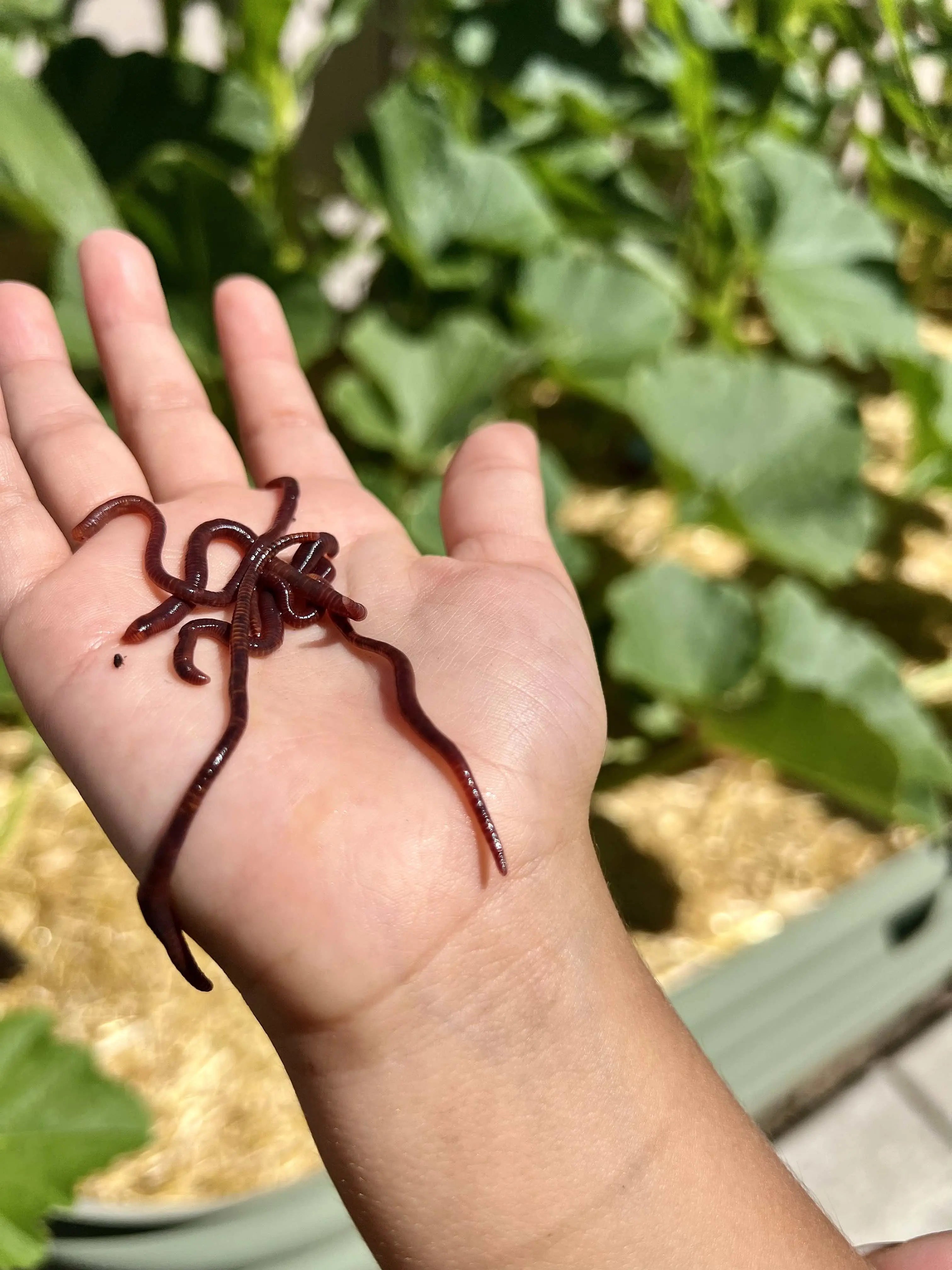Red Wiggler Express: Supporting Anglers with High-Quality Worms
Wiki Article
Red Wigglers 101: Whatever You Required to Know for Thriving Gardens
Red wigglers, or Eisenia fetida, play an essential role in lasting gardening techniques, offering as effective decomposers that convert natural waste right into valuable vermicompost. Comprehending their environment, dietary choices, and the myriad benefits they provide can change your horticulture strategy.Comprehending Red Wigglers

Red wigglers flourish in atmospheres abundant in organic material and wetness. Red Wiggler Express. They possess an unique digestion system that enables them to refine food scraps quickly, eliminating spreadings that are loaded with important nutrients such as nitrogen, phosphorus, and potassium. These spreadings improve soil structure, improve water retention, and foster beneficial microbial activity, every one of which contribute to robust plant health
Additionally, red wigglers can survive in varied conditions, making them versatile to different horticulture techniques, including indoor and outside composting systems. Their capacity to take in large quantities of natural waste everyday positions them as valuable allies for both home garden enthusiasts and commercial farmers. By including red wigglers into gardening efforts, one can dramatically enhance dirt fertility and support lasting horticulture practices.
Perfect Environment for Red Wigglers
Producing an optimum atmosphere for red wigglers is essential for optimizing their composting capabilities and general wellness. Red wigglers thrive in moist, dark, and well-aerated habitats, which very closely resemble their native environments in ground cover and rotting raw material. An appropriate environment ought to provide a temperature array between 55 ° F and 77 ° F(13 ° C to 25 ° C), as severe temperatures can stress or hurt the worms.The bed linens material, such as shredded paper, cardboard, or coconut coir, need to be maintained damp but not overly wet, as extreme wetness can cause anaerobic problems destructive to worm health. Furthermore, a pH degree between 6.0 and 7.5 is suitable, making certain a well balanced environment.
Proper oygenation is just as vital; it permits for oxygen circulation and avoids the build-up of harmful gases. A container or container designed for vermicomposting must have water drainage openings to get rid of excess dampness and promote airflow. Routine monitoring of these conditions is necessary for keeping a flourishing red wiggler populace, inevitably boosting their efficiency in damaging down organic waste and enriching yard dirt.
Dietary Needs and Preferences

Red wigglers exhibit specific preferences; they are especially fond of softer, decaying materials over more challenging or even more coarse compounds. It is crucial to stay clear of feeding them citrus peels, onion, and garlic in huge amounts, as these can be harmful. In addition, meat, dairy products, and oily foods need to be excluded, as they can attract pests and produce unpleasant smells.
(Red Wiggler Express)Green products, such as veggie scraps, give nitrogen, while brownish products, like cardboard and dried out fallen leaves, supply carbon. By providing to their dietary demands, gardeners can cultivate a flourishing population of red wigglers in their garden compost systems.
Benefits of Using Red Wigglers
The remarkable benefits of utilizing red wigglers in gardening expand far past their duty in composting. These flexible organisms contribute dramatically to dirt wellness, improving nutrient availability and promoting microbial activity. By aerating the dirt as they delve, red wigglers improve water drainage and root penetration, creating an optimal setting for plant development.
In addition, red wigglers are efficient recyclers of natural waste, converting it into nutrient-rich castings that work as an outstanding natural plant food. These spreadings include useful microorganisms and important nutrients, such as nitrogen, phosphorus, and potassium, which are important for plant development. The slow launch of nutrients from worm castings makes sure a stable supply, reducing the danger of nutrient leaching and advertising lasting horticulture practices.
Making use of red wigglers cultivates a more sustainable horticulture technique by minimizing dependence on chemical fertilizers and promoting a closed-loop system, where waste is changed into beneficial sources. In general, including red wigglers into gardening techniques uses a wide range of environmental and agricultural benefits.
(Red Wiggler Express)
Composting With Red Wigglers

To start a successful vermicomposting system, select an ideal container with appropriate ventilation and water drainage. The suitable setting for red wigglers includes a wet, dark setting with temperatures in between 55 ° F and 77 ° F. Begin by layering shredded paper, cardboard, and food scraps, ensuring a balanced mix of carbon and nitrogen-rich materials.
Red wigglers grow on vegetable peels, fruit scraps, coffee premises, and eggshells, while staying clear of meat, dairy, and oily foods that can draw in bugs. Routinely check wetness levels; the bed linens ought to perspire however not soaked. Harvest worm castings every few months by separating the worms from the garden compost, which can after that be used straight in gardens or saved for later use.
Executing vermicomposting not just decreases landfill waste however likewise enriches garden dirt, promoting healthy and balanced plant growth and lasting horticulture practices. Welcome this eco-friendly method to boost your more info here gardening endeavors.
Conclusion
In summary, red wigglers are necessary microorganisms for enhancing yard efficiency with reliable composting. By utilizing red wigglers, garden enthusiasts can dramatically enhance soil quality and nutrient availability, cultivating healthier plant growth.Report this wiki page